Richard III (1956)
“Shall I be plain? I wish the bastards dead.”
|
Synopsis: |
|
Genres, Themes, Actors, and Directors:
Review: He notes that Olivier’s Richard “is as straightforward with us as he is duplicitous with those in the English court,” and writes, “As he strides into a long shot so we can get a good look at his gnarled form or moves to within an inch of the camera, he reveals a sly wit, a frightening ferocity and egocentricity, and a snide superiority and vengeful anger toward the nondeformed world he wants to ‘bustle in’.” He adds, “What is jolting as he speaks to us is that he isn’t the typical madman lusting for power, but a clear-headed, ambitious schemer extraordinaire.” For those unfamiliar with the play (like me), it will take a bit of research to understand how all the specific characters fit into place — but the overall sense that no one will be spared from Richard’s evil is crystal clear. Peary writes that “Olivier’s Richard expresses the same amusement and amazement as we do that his bold plot works so smoothly, that he can eliminate his opposition one by one without anyone being the wiser, and that, in a creepy scene, he can seduce the virtuous Lady Anne [Claire Bloom] and have her kiss him lewdly although she wants him dead and is not physically attracted to him.” The supporting performances throughout are excellent; while Olivier wanted Orson Welles to play Buckingham, I think Richardson fits the bill nicely as his right-hand schemer: … and the VistaVision cinematography and historic sets are gorgeous. This film isn’t an easy watch, but it’s worth the effort. Notable Performances, Qualities, and Moments:
Must See? Categories
Links: |
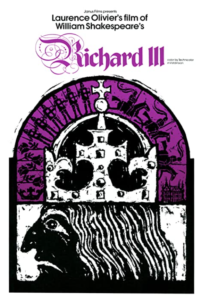
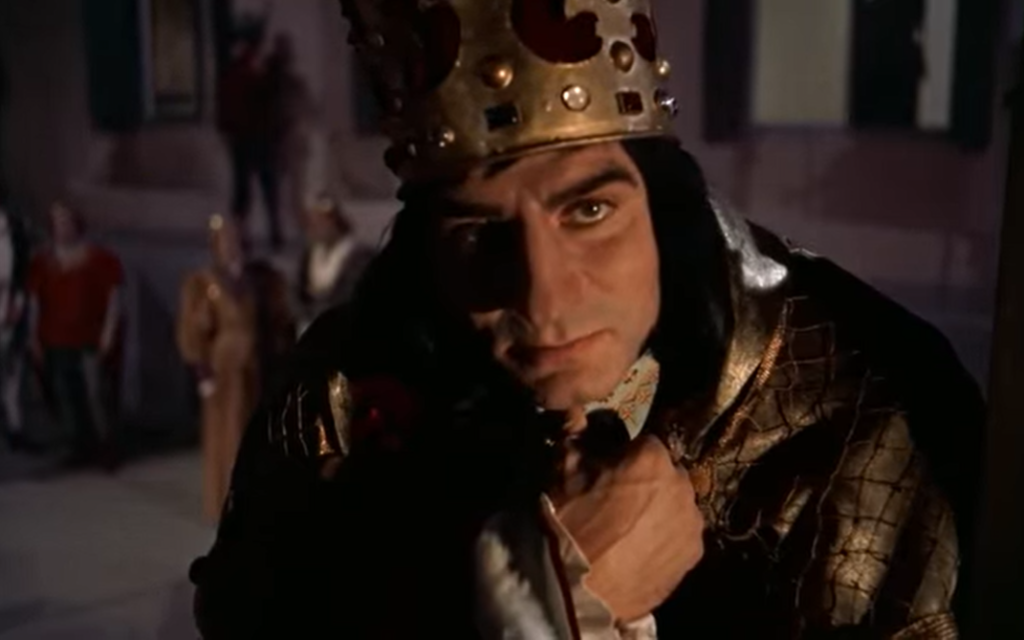
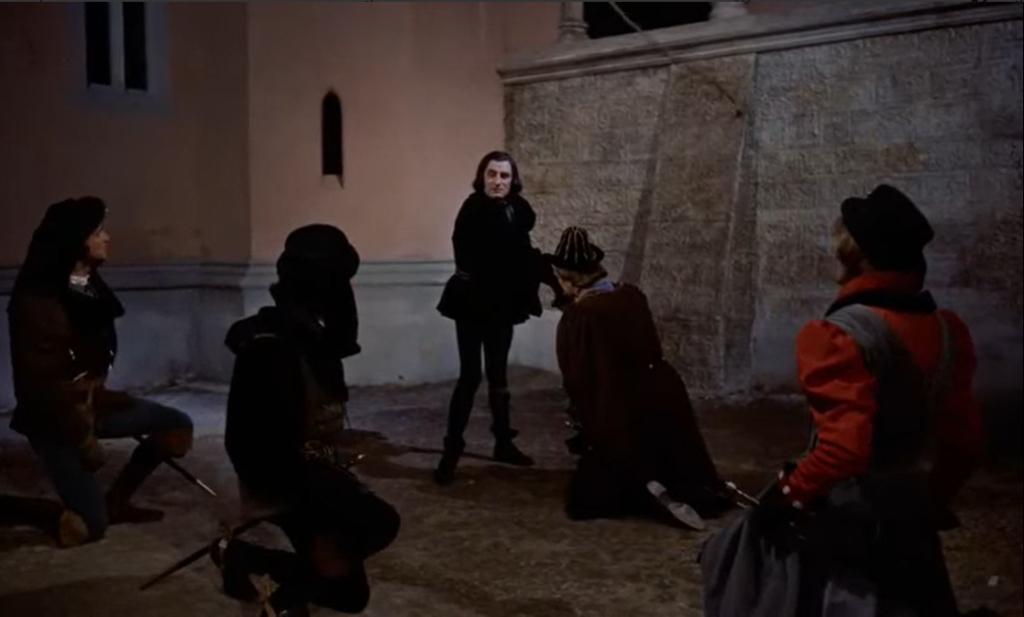
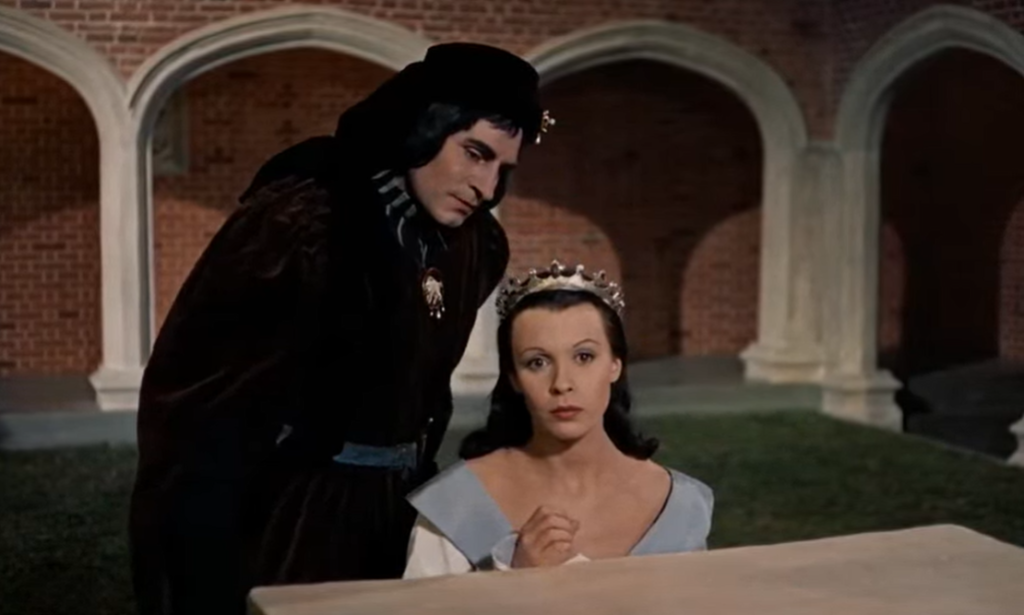
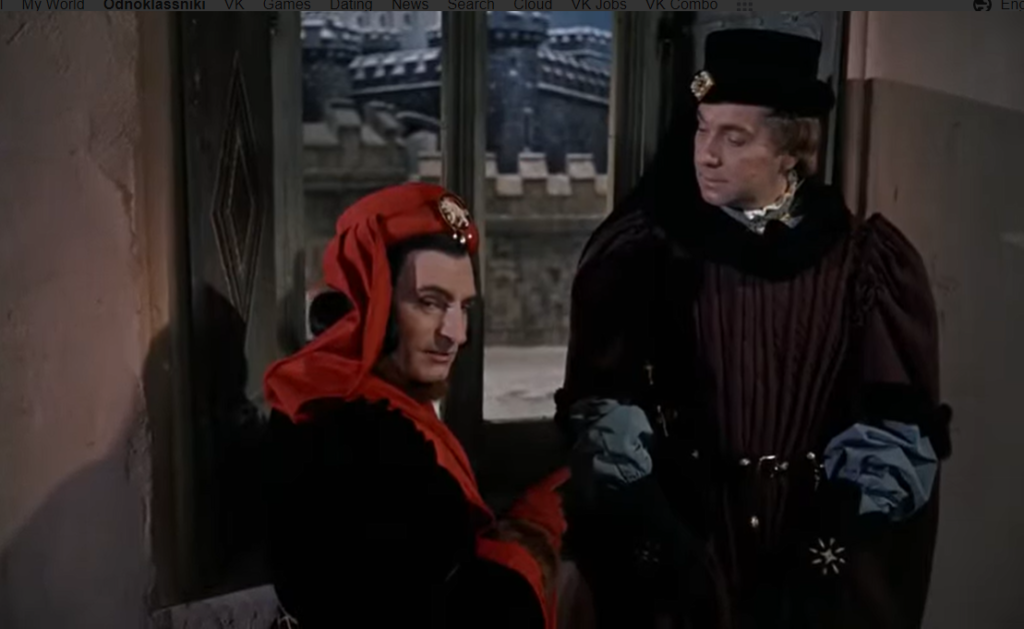
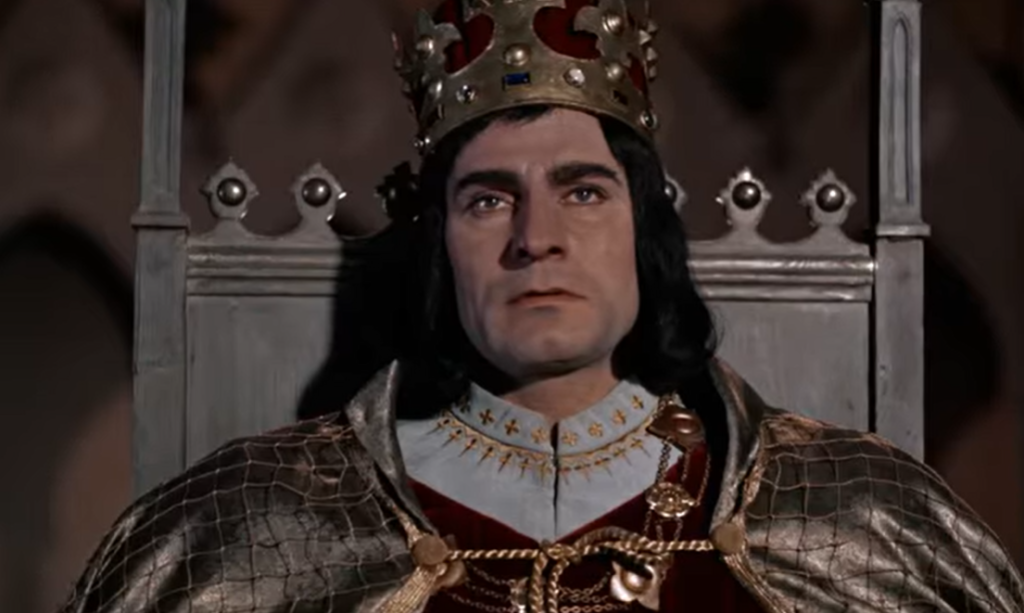
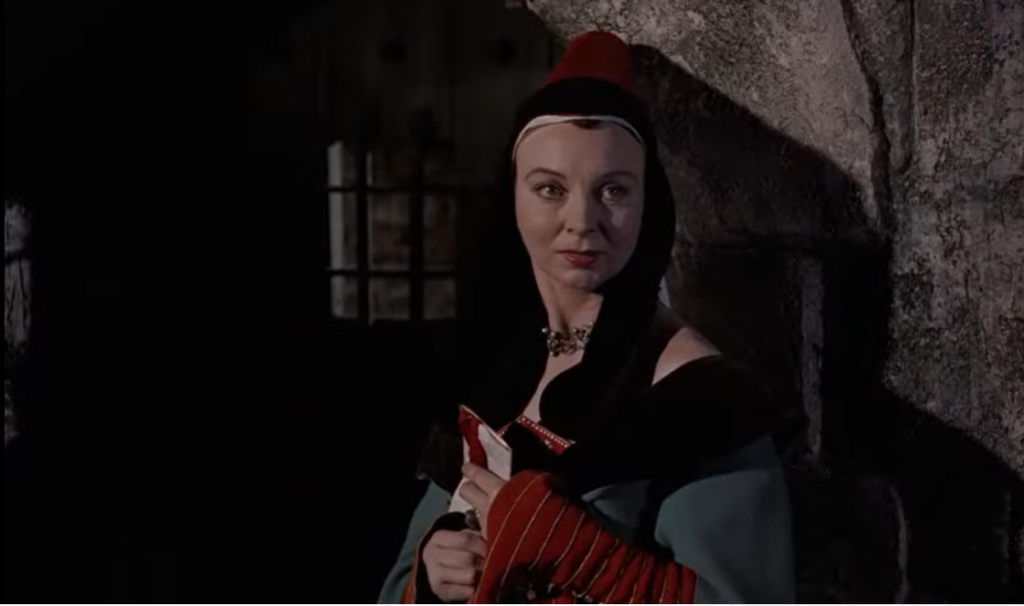
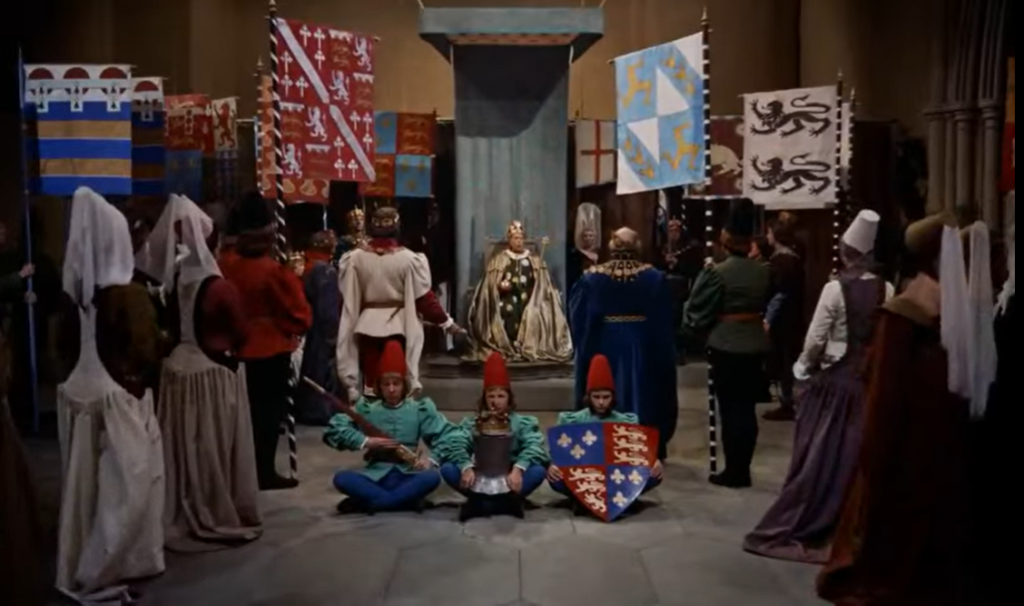
One thought on “Richard III (1956)”
Not must-see. Mainly for those with an interest in filmed versions of Shakespeare plays.
I’d seen this once before. Seeing it again hasn’t changed my mind; I find it an uneven film overall. It does have some scenes that have a certain strength but ultimately it’s not compelling enough to be satisfying.
Mainly the fault lies with Olivier. If I had to choose between Olivier and Orson Welles in terms of how they approached Shakespearean plays as films, I’ll take Welles – because I don’t think he disappoints. And he serves the work more than he serves himself.
Olivier just bothers me too often. There are many who weren’t (and aren’t) bothered by him so this may largely be a matter of taste. I just often find him intrusive as an actor (and, honestly, I only like him in a handful of the films he appears in). I think he overdoes – and, in this film in particular, I’m afraid Ms. Bloom falls under his influence, since I find her performance rather affected.
As is the case with Olivier’s ‘Hamlet’, he’s a better director than an actor. As a result, his supporting cast mostly comes off rather well; I guess he mostly left them alone and respected the talent of pros such as Gielgud, Richardson and Hardwicke – who all come off rather well.
I don’t think film fanatics need to see all the major films that were made of Shakespeare’s work; I think they only need to see the ones that are the most effective. Granted, this is only my opinion of this particular film – and, to assess Olivier further, I still need to revisit ‘Henry V’.
As I mentioned, certain things work here (I esp. like near the end, when Richard is haunted by those he killed) – but I kept hoping for more… energy (at least) in this adaptation.